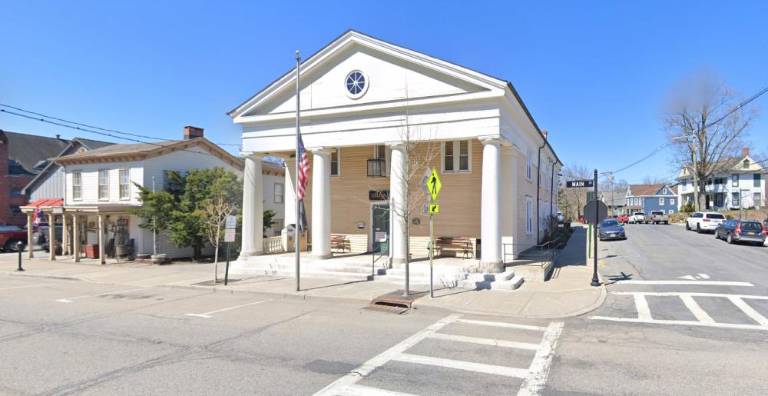Manufacturing defect blamed for battery fires at Convergent storage facilities
Warwick. Convergent Energy said replacements may not be available until late 2024.

The Warwick Village Board passed a resolution proposing a new local law governing the approval of land use involving energy storage systems.
The proposed local law, which was introduced at the October 16 Warwick Village Board of Trustees meeting, would create a one-year moratorium on land use approvals for development of public utility facilities involving energy storage systems. A public hearing on the proposed local law is scheduled for November 6 at 7:30 p.m.
Earlier in the meeting, the board heard from Convergent CFO and COO Frank Genova, who shared his company’s findings on the cause of the fire-related incidents at its Warwick battery energy storage locations on County Route 1A and Church Street.
After an investigation that included outside experts, representatives from the Warwick Valley Central School District and insurance agents, Convergent found that the fires were caused by a manufacturing defect in the Powin-branded Centipede models, which enabled water to enter units at each location, resulting in an electrical fire. Convergent’s third Warwick location uses an older Powin battery energy storage system and was unaffected.
Convergent clarified that it does not produce battery energy storage systems and that it procures units from reputable vendors. While emphasizing the need to prioritize safety, Convergent said a solution for replacing the affected units would likely not be available until the second half of 2024.
Vincent Galligan of Orange & Rockland Utilities, who was present at the meeting, shared that his company is working on backup solutions to cover Warwick’s energy needs, including the development of a mobile substation.In response to Convergent’s findings, trustees expressed concern about the newness of the centipede systems, and whether Warwick was serving as a pilot program for these models.
“It is absolutely not a pilot. This is a fully commercial product, not a beta version. It is a product Powin is still pushing and selling to the broader market,” said Genova. He also cited the findings of the investigation that concluded Powin products to be safe and that, like the GE products that were part of Convergent’s original proposal, Powin’s were considered top tier in the industry.
During the meeting Trustee Thomas McKnight questioned Convergent’s emergency response plans and fire protocols, stating his views that the board may not have been properly educated in the risk of battery storage system fires and mitigation.
“When you come to a municipality. And you come to planning. The board is made up of residents who are not battery storage fire experts necessarily. So when those questions are asked, it’s really on Convergent to address them. I get the sense that any concerns were almost dismissed in a way ... It felt quickly glossed over.” McKnight said, noting how fast the conversation had moved from fire safety concerns to other issues.
In response, Genova said that thermal incidents at the two Warwick locations were very low, outlier situations. He added that he could not comment on how quickly the conversation advanced as he was not present at the meeting where fire risk and emergency response was discussed.
Trustee Mary Collura asked about the lack of training received by Warwick’s first responders, to which Genova replied that the thermal incidents occurred before additional training was scheduled to take place.
Both the village board and Genova agreed that ongoing conversations are needed to rebuild trust between the village of Warwick and Convergent.
“We anticipate meetings to chart a path forward,” said Genova.